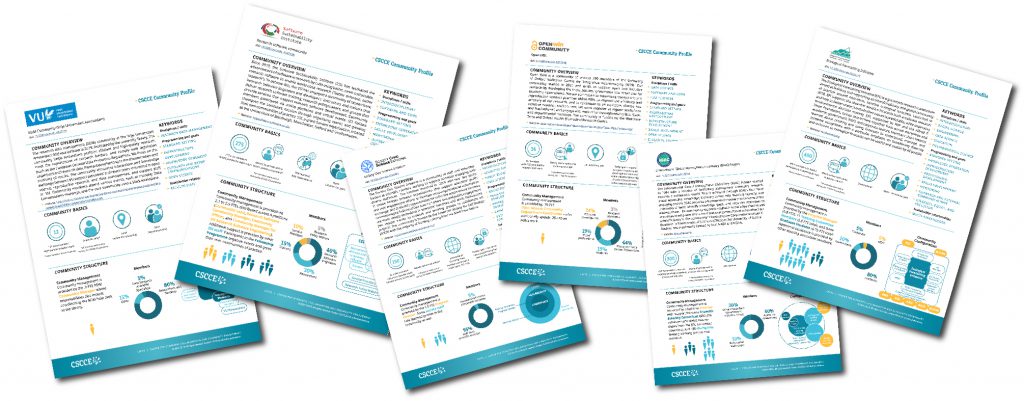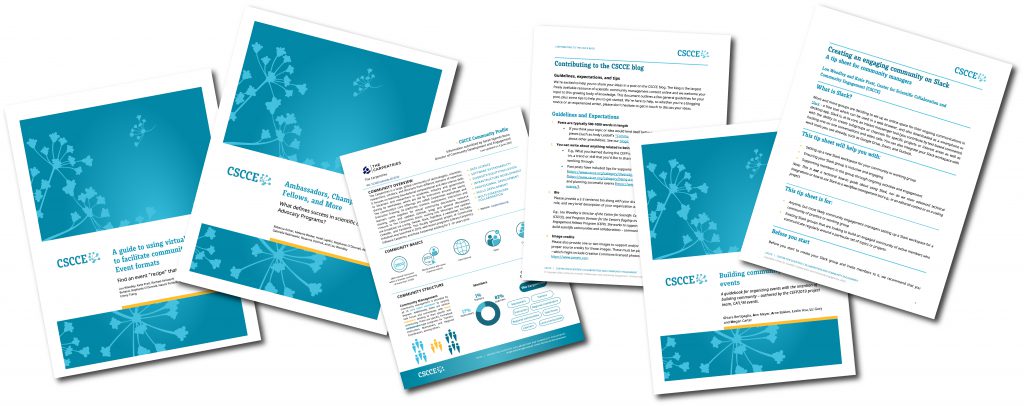Today we’re launching the first outputs from a project that we’ve been working on this year to better characterize communities in science – and to support scientific community managers, their leadership, and funders to meaningfully compare some of the current activities taking place across the broad landscape of STEM community projects.
The CSCCE community profiles project has resulted in the creation of an initial collection of 13 community profiles – two page PDFs capturing core features of each community from staffing to programming and funding sources. We collected the data using a custom, detailed survey and then translated what we found to a standardized profile template, which was specifically created for this project. The resulting profiles, which incorporate CSCCE’s own frameworks for describing communities and community member engagement, allow easy comparison between different scientific communities.
In this post we introduce the rationale for the project and highlight the first 13 profiles. In Thursday’s post, we outline how the project was carried out.
Continue reading “CSCCE’s Community Profiles Project: First round of profiles now out!”

